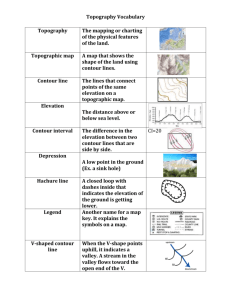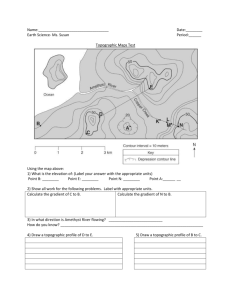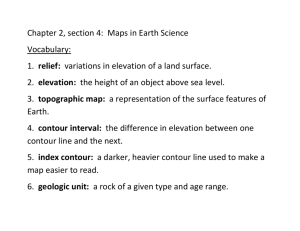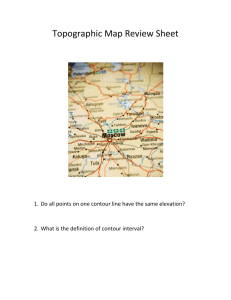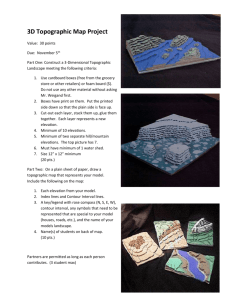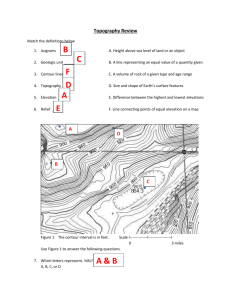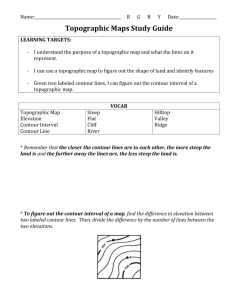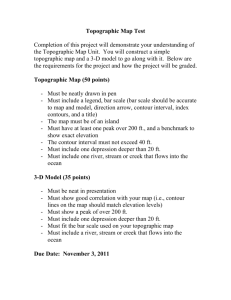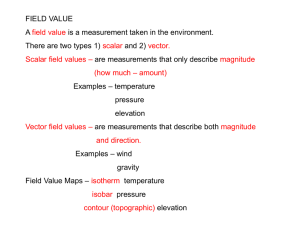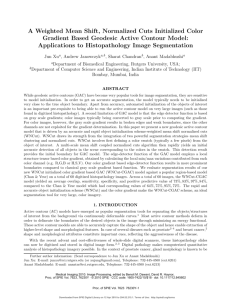Topographic Modeling Lab
advertisement
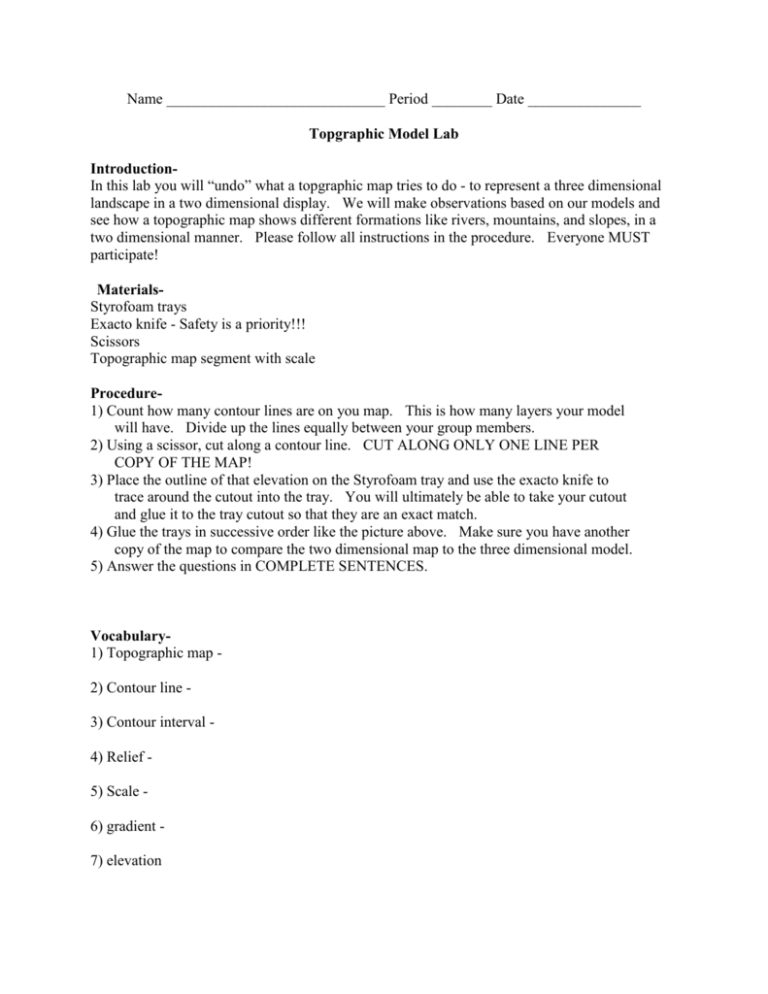
Name _____________________________ Period ________ Date _______________ Topgraphic Model Lab IntroductionIn this lab you will “undo” what a topgraphic map tries to do - to represent a three dimensional landscape in a two dimensional display. We will make observations based on our models and see how a topographic map shows different formations like rivers, mountains, and slopes, in a two dimensional manner. Please follow all instructions in the procedure. Everyone MUST participate! MaterialsStyrofoam trays Exacto knife - Safety is a priority!!! Scissors Topographic map segment with scale Procedure1) Count how many contour lines are on you map. This is how many layers your model will have. Divide up the lines equally between your group members. 2) Using a scissor, cut along a contour line. CUT ALONG ONLY ONE LINE PER COPY OF THE MAP! 3) Place the outline of that elevation on the Styrofoam tray and use the exacto knife to trace around the cutout into the tray. You will ultimately be able to take your cutout and glue it to the tray cutout so that they are an exact match. 4) Glue the trays in successive order like the picture above. Make sure you have another copy of the map to compare the two dimensional map to the three dimensional model. 5) Answer the questions in COMPLETE SENTENCES. Vocabulary1) Topographic map 2) Contour line 3) Contour interval 4) Relief 5) Scale 6) gradient 7) elevation Analysis1) What is the horizontal scale of the map? Can we assume that the same scale can be used for the model? 2) What is the approximate elevation at points A, B, C, and D on your map? 3) What can be the maximum elevation (whole number) the map can have? How do you know? 4) Calculate the gradient between points A and B, and C and D. Use the map for horizontal distance between the points. 5) How does the appearance of the contour lines for the steeper gradient compare to the lines for the more gentle gradient? Make up a rule for how steepness relates to the appearance of contour lines. 6) Using the map how does the contour lines appear as they cross the river? Which direction does the river flow? Make up a rule for how the contour lines are shaped relates to direction the river flows. 7) What does a mountain look like on a topographic map? 8) Draw a profile from X to Y on a separate sheet of looseleaf paper. How does the profile look like your model? 9) What is the contour interval of the map? If we were to increase the interval, what will happen to the gradient of any slope? (Take your numbers now and increase the change in elevation.)
